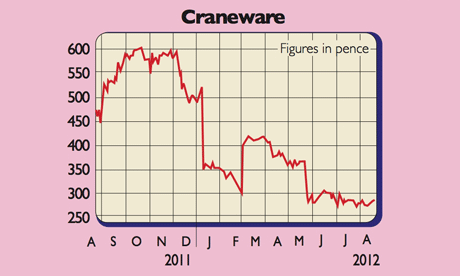Get the latest financial news, insights and expert analysis from our award-winning MoneyWeek team, to help you understand what really matters when it comes to your finances.
You are now subscribed
Your newsletter sign-up was successful
Want to add more newsletters?

Twice daily
MoneyWeek
Get the latest financial news, insights and expert analysis from our award-winning MoneyWeek team, to help you understand what really matters when it comes to your finances.

Four times a week
Look After My Bills
Sign up to our free money-saving newsletter, filled with the latest news and expert advice to help you find the best tips and deals for managing your bills. Start saving today!
Unlike Britain's hospitals, America's are privately run. That means they bill patients, healthcare insurers and the government (eg, Medicaid) separately for any treatment costs. This gets complicated, given that an individual hospital can have up to 15,000 different product lines (such as plasters, stitching and wound dressings), which all need to be billed for correctly.
This is where Craneware, the number-one provider of pricing and billing systems to American hospitals (with a market share of about 25%) fits in. The company's software not only saves customers a ton of money in reduced administration time, but it also helps maximise revenues by invoicing customers correctly the first time round.
No wonder then that renewal rates on its multi-year contracts are above 90%, which produces high recurring income for the firm.
MoneyWeek
Subscribe to MoneyWeek today and get your first six magazine issues absolutely FREE

Sign up to Money Morning
Don't miss the latest investment and personal finances news, market analysis, plus money-saving tips with our free twice-daily newsletter
Don't miss the latest investment and personal finances news, market analysis, plus money-saving tips with our free twice-daily newsletter
The only recent problem has been that the industry has embarked on the tricky implementation of electronic patient records. This initiative has sometimes taken precedence over other IT initiatives, in turn causing temporary delays in getting new contracts signed.
But I still think the share price halving over the past 12 months could present an opportunity. Earnings before interest, tax, depreciation and amortisation (EBITDA) for the year ending June 2012 is expected to be up 15% to $11.6m on revenues of $41m. House broker Peel Hunt forecasts sales and underlying EBITDA to jump to $47m and $14.5m respectively for the next year. On this basis I would value the group on ten times the prospective EBITDA. Adjusting for net cash of $23.6m and $1m of deferred consideration liabilities, this delivers an intrinsic worth of 390p per share.
Craneware (AIM: CRW)

Possible pitfalls include concerns over future price pressures from even bigger hospital chains as the firm's customers consolidate. But any takeovers may actually lead to more business being pushed towards Craneware as rival systems are swapped out for the group's more popular and robust software.
Other issues to watch include adverse foreign-exchange fluctuations, greater competition and further contract delays. In July, CEO Keith Neilson said that "sales cycles are returning to normal lengths" and "we are in a stronger position than we have ever been".
It must help that the American government has been putting pressure on hospitals to improve the efficiency of their invoicing after a number of high-profile scandals in which several federal health programmes became the victims of over-billing. As yet only around half the 5,750 hospitals involved have proper revenue assurance systems. Thus Neilson believes there could be a shift in demand to the firm's audit and compliance applications. Preliminary results are due out on Tuesday 4 September.
Get the latest financial news, insights and expert analysis from our award-winning MoneyWeek team, to help you understand what really matters when it comes to your finances.
Paul gained a degree in electrical engineering and went on to qualify as a chartered management accountant. He has extensive corporate finance and investment experience and is a member of the Securities Institute.
Over the past 16 years Paul has held top-level financial management and M&A roles for blue-chip companies such as O2, GKN and Unilever. He is now director of his own capital investment and consultancy firm, PMH Capital Limited.
Paul is an expert at analysing companies in new, fast-growing markets, and is an extremely shrewd stock-picker.
-
 Should you buy an active ETF?
Should you buy an active ETF?ETFs are often mischaracterised as passive products, but they can be a convenient way to add active management to your portfolio
-
 Power up your pension before 5 April – easy ways to save before the tax year end
Power up your pension before 5 April – easy ways to save before the tax year endWith the end of the tax year looming, pension savers currently have a window to review and maximise what’s going into their retirement funds – we look at how